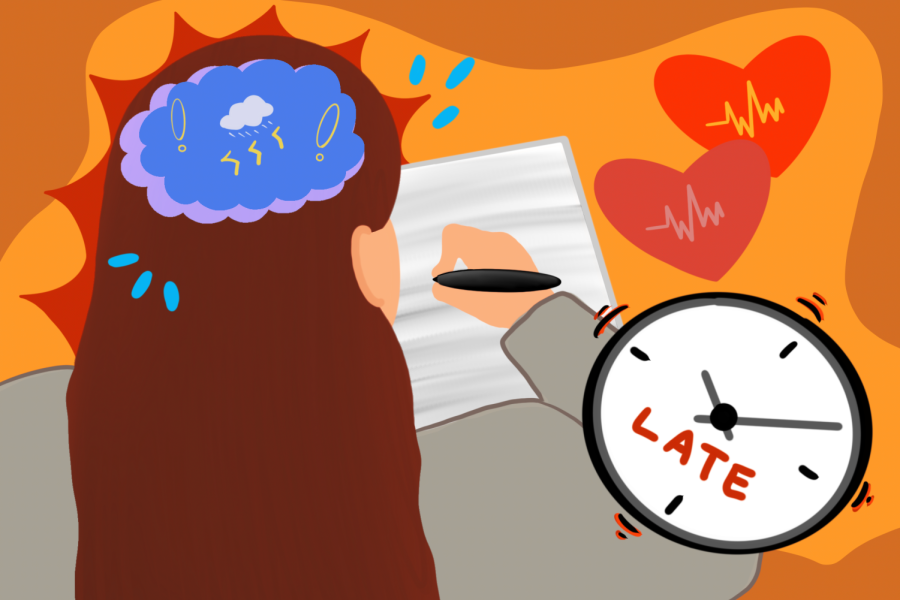Professors, scrap ‘no exception’ late work policies
August 13, 2022
Editor’s Note: This article first appeared as part of the August 9 flipbook.
Professors have a lot of freedom in deciding how to run their classes, particularly when it comes to assessments and grading. However, a distinct difference between professors at the University is their late work policies.
Some professors have flexible policies for late work. In these cases, they listen to students’ concerns and work with them to accommodate specific situations they may be facing. Other professors maintain “no exception” late work policies and instead penalize late work from students who are already experiencing difficulties, which are often out of students’ control.
Unfortunately, these stricter policies are common. There have been instances where professors have penalized students for illnesses, the passing of a loved one or mental health emergencies.
These inflexible “no exception” late work policies harm students, as they worsen already difficult situations.
Varun, whose last name has been withheld for privacy reasons, had a professor this past spring that ignored their request for extensions despite Student Emergency Services contacting the professor.
“I was having a lot of trouble with depression, and I (was) having psychiatrist appointments (and) seeing a therapist twice a week. It was quite intense and difficult, so I contacted Student Emergency Services,” Varun said. “Most of my professors were more than accommodating. But (one of my professors) had mentioned before in a class that it was unlikely he would give any extensions. Nonetheless, I received no response from him.”
This treatment from the professor to students requesting extensions on assignments was not an isolated incident, according to the student.
“One of my friends had COVID and was out for a week, and the professor did not respond (to emails requesting extensions),” Varun said. “He gave him the same treatment.”
Unfortunately, this is a common occurrence for many students, as some professors maintain strict, “no exception” late work policies, disregarding the serious struggles students may face.
While there are professors who maintain and enforce unreasonable late work policies, some professors understand that their students are humans first, and their lives may often involve unique challenges.
“I find it incredibly important to allow students to have the flexibility with deadlines in my courses,” said Dr. Beth Colón-Pizzini, assistant professor of instruction in the department of African and African Diaspora Studies, in an email. “I recognize the majority of students at UT have a very full course load while they are trying to balance extracurricular activities, part-time jobs, family care and their own mental health all at the same time.”
Many UT students are busy and involved with various activities and responsibilities outside of class time, often intensifying the difficulty of managing academic classes and assignments. Whenever serious situations or emergencies arise, this can further hinder students from turning in their work on time.
These policies only worsen the situations students are experiencing, while also penalizing them academically. This ultimately ends up targeting and punishing students for circumstances that are out of their control.
It is far past time for professors to scrap these “no exception” late work policies. Professors should recognize that students are individuals, each with their own lives, stories and circumstances that deserve understanding and empathy.
Green is a government and social work sophomore from Cedar Park, Texas.



